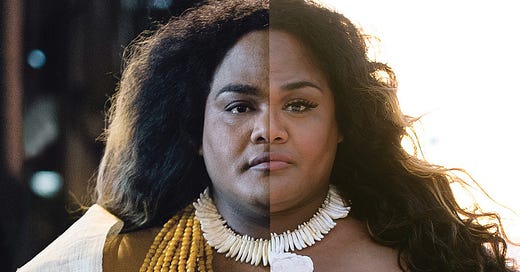“Māhū is the expression of the third self. When you find that place in yourself to acknowledge both male and female aspects - and accept your capacity to embrace both - that is where the māhū exists and true liberation happens.” - Kaumakaiwa Kanaka‘ole
Since this week is about celebrating PRIDE, I thought it only appropriate to bring up the concept of Māhū, a term I learned while living in Hawaii. In Hawaiian culture, there are three genders: kane (men), wahine (women), and māhū who are “in the middle.” Māhū embrace and express both feminine and masculine traits. Historically, this ability to see the world from more than one perspective and meld the two was considered a gift and is greatly valued in Hawaiian culture.
There are many reasons the Hawaiians are less rigid about gender roles and more accepting of differences. This article that appeared in the May 14, 2019 edition of Honolulu Magazine, entitled “Portraits of Gender and Sexual Identities in the Hawaiian Communities” will explain a lot and, if you are like me, leave you intrigued and wanting to know more.
But “Pass Along Songs” is rooted in music, so I would like to share some of the Hawaiian music I’ve come to know, love, and associate with performers who embrace the concept of Māhū.
Let’s begin with a song by Kaumakaiwa Kanaka‘ole, pictured in the image at the top of the page. Kanaka’ole is a global touring and recording artist whose genre-crossing work encourages people to challenge the binary understanding of gender and sex. “I want the concept of māhū to be taken out of the sexual context, exclusive of gender. Gender not as it applies to female and male as biologically, but as a natural, spiritual definition of gender,” says Kanaka‘ole. Have a listen:
Translation: https://bit.ly/2TXD8XC
Our second musician is someone you may know - Kealihi Reichel. With his mix of Hawaiian chanting and mainland pop music, Keali'i Reichel became Hawaii's most popular artist in the 1990s. The popularity of his work extended beyond Hawaii as well, winning him fans on the United States mainland and internationally.
Kealihi’s first, breakout album had just been released when I moved to Maui. Those of us who knew his story and his music were delighted but also greatly amused by the assumptions his new fans made. Let’s listen to the song that catapulted him into fame.
What do you think it’s about?
Translation: https://www.huapala.org/Kaw/Kawaipunahele.html
Finally, I would like to share a movie that was made about one of Hawaii’s most well-known and influential māhū, Wong-Kalu. The title of the movie is “Kumu Hina.”
Here’s the link to the movie’s trailer: https://kumuhina.com/trailer/
So tell me, what do you think of the concept of a Third Self? Can you relate?
Do you feel your identity is firmly rooted in one gender or the other?
Can you imagine wanting to explore qualities of the opposite gender?
What do you think of this statement by Wong-Kalu?
“Māhū is the expression of the third self. It is not a gender, it’s not an orientation, it’s not a sect, it’s not a particular demographic and it’s definitely not a race. It is simply an expression of the third person as it involves the individual.”
Let the discussion begin!
Jena
Copyright 2021 by Jena Ball. All Rights Reserved.







This is my absolute favorite, Jena! Thank you!
Thank you for this post, the thoughts, and the music. This touched me very close to home.